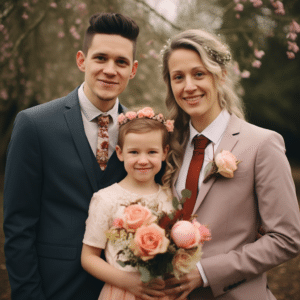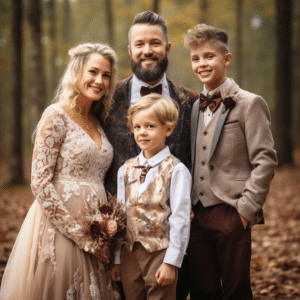
Adopted Siblings Marrying: Legal, Social and Cultural Perspectives
An adopted sibling is a person who is not biologically related to another but shares either one or both adoptive parents. In most communities, such individuals are considered full siblings. Adopted siblings’ wishing to marry is a rare and unusual occurrence, but it happens.
Adoption is the process whereby a biological parent gives up their rights, duties, liabilities, and responsibilities to an adopter who assumes the role of the mother or father to the child. An adopted child enjoys all rights and privileges bestowed on a biological child legally and socially.
Adoption is either formal or informal where the former includes a laid down legal framework whereas the latter lacks such structure. The trend of formal adoption has been on the rise in recent years with children below five years being the most adopted of which 60% are girls.
Several factors can lead to adoption; negligence by the parent, inability to raise the child , and the case of being orphaned. The main aim of adopting is to provide a sense of belonging, warmth, and love to a child. It also reduces the number of homeless children and lessens the burden on orphanages and children’s homes.

Is it Right to Marry an Adopted Sibling?
In most countries, it is against the law and socially unacceptable for adopted brothers who are related by blood to get married. Because of genetic mutations caused by inbreeding, a child born from a parent-to-parent relationship is likely to get diseases and illnesses that run in the family. Some of these diseases are blindness, diabetes in newborns, decreased cognitive ability, malformed limbs, and schizophrenia.
Whereas a romantic relationship between adopted siblings with no blood relations doesn’t pose any health danger, it is frowned upon as it is considered a taboo in most societies. Various factors influence views on these marriages:
Religious Beliefs
Religious beliefs play a vital role in the approval of marriages between adopted siblings. Sharia law followed by the Muslim faithful prohibits formal child adoption though one can provide foster care to a child.
Islam allows the marriage between foster siblings so long as the two have no blood relations. Hinduism does not have a precise regulation on this issue. As stated in the Canonical law, Christians believe that an adopted child is the same as one from the family’s bloodline.
Under Canon 1094 one is prohibited from entering into a marriage contract with an adopted sibling. Since canons are civil laws, a bishop can make an exception if a sibling was adopted at an older age or as a teenager. Jewish law allows one to marry their adopted sibling though it is considered improper.
Legal Aspect
Laws regarding adoption and marriage vary widely between various countries. In some states in the USA and countries such as Canada, Argentina, Brazil, Thailand, Japan, and in The Netherlands, marriage between adopted siblings who have attained the legal age of consent is allowed.
In the United States adopted siblings who intend to marry should not share more than 25% DNA or be less than fourth degree related. They must prove to the court that they are not related before getting authorization. In effect, non-related adopted siblings can legally get married by the government agencies regardless of their religious beliefs since the constitution is superior to other laws.
Notably, countries such as Kenya have no express law on such a marriage indicating a lack of anticipation of such an occurrence. Violation of law and regulations on incest and adoption attracts diverse penalties and fines in different countries.
Social Aspect
An adopted sibling is expected to assimilate into the adoptive family and hold the same values as the other family member. Common social view binds them together thus this marriage would create complicated dynamics in a family, especially for the parents. It can cause disarray and tension in a family. Children born in such union are likely to suffer from social discrimination and rejection.
Traditions
Traditional beliefs also influence the decision on whether one can marry an adopted sibling all the more in primitive communities. Most communities in Africa consider romantic relationships between siblings as a bad omen that can lead to curses.
When a child is adopted, several rituals are performed to initiate him into the family and community. The adopted child is now considered a member of the family and clan by extension thus marrying a member of the same family would be a taboo.
In the African communities, one is supposed to look for a spouse from a far-off village to reduce the chances of getting married to a relative. A sibling is not supposed to see the nakedness of a family member, including an adopted member.
Siblings of the opposite sex are also discouraged from spending a lot of time together alone to avoid falling into sexual temptations. Such acts are ought to attract the wrath of gods.
Biological siblings adopted by different parents have found themselves
Biological siblings adopted by different parents have found themselves in romantic relationships, some even in marriage.
In Brazil, a husband and wife found out on live radio that they were biological siblings separated at birth and adopted by different parents. In an incident in Germany, a brother and sister were married and had four children before discovering they were siblings.

Two of their children, unfortunately, had problems with their minds. Psychologists say that people are drawn to people who are similar to them or who remind them of themselves. This is why people are attracted to each other even if they don’t know they are related. It is rare and unusual for biological brothers to marry each other.
Though legal in some communities, it is strange and improper to marry your adopted sibling whether related by blood or not. Marriage, though considered an affair between two people, the couple should consider the effect such a move would have on the entire family.
Nevertheless, it is important to learn the laws governing your country and religion before entering into a romantic relationship with an adopted sibling. An adopted person who marries their sibling faces less discrimination and rejection in liberal communities, compared to those in bigoted societies.